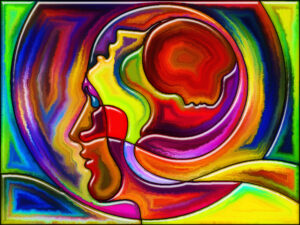The Need To Know

The Need To Know
“We don’t know who discovered water, but we’re certain it wasn’t a fish”
…. John Culkin
Patterns of thinking are held in place, in part, by the need to know.
In the face of any negative experience—when we are anxious or threatened or in pain— we instinctively try to think our way out of the situation. For many people, this becomes a basic strategy for solving problems: “figure out” what to do. Over time, we become reliant on this effort to know. This strategy solidifies into an unconsciously held and deep belief that knowing is essential to safety (or at least the illusion of safety). We cling to knowing as a primary source of security. It allows us to feel more in control.
Alongside this attachment to knowing, we can also observe the tendency to defend what we know (or what we believe we know). We can notice that we cling to what we believe, and that we attempt to prove to ourselves that our views are right. At deeper levels, we can also see the extent to which particular views and beliefs come to be invested with a sense of self.
At a yet more fundamental level, we can see how we identify with the faculty of knowing: we become the knower, never noticing, much less questioning, the assumption that who I am is the one who knows. Indeed, the function of knowing is a basic aspect of the conscious mind, integrally involved in giving rise to the sense of self. So, whatever it is I take my self to be, the ability to know is at the core of it.
This kind of self-identity rests on several false assumptions. Self-as-knower is based on what we have come to know in our lives along with all of its associated beliefs and assumptions. It may readily become a closed circuit that limits our thinking, our relating, and our way of being in the world. When we inquire deeply about what we know, we can begin to see that what we think we know keeps us from seeing what we don’t know, which is nearly everything[1].
When, in contrast, we are able to let go of needing to know and can relax into not having all the answers, we can begin to access a domain of deeper awareness that is based not in what we know but in the simple experience of being. Such open and authentic experience of the present moment allows the emergence of insight and creativity. As we learn to locate ourselves in the experience of not knowing, we can begin to transcend limiting identifications with the self as knower.
Not-knowing is the hallmark not just of this inquiry, but of any true inquiry.
As Socrates said, true wisdom comes to us when we realize how little we understand about life, ourselves, and the world around us.
“Thinking we know costs us
everything we don’t know —
which is nearly everything”.
…Gregory Kramer[i]
[i] Kramer, Gregory (2007) Insight Dialogue: The Interpersonal Path To Freedom. Shambhala Press, Boston
[1] Quote from Gregory Kramer, 2007 Insight Dialogue: The Interpersonal Path To Freedom. Shambhala Press, Boston.
